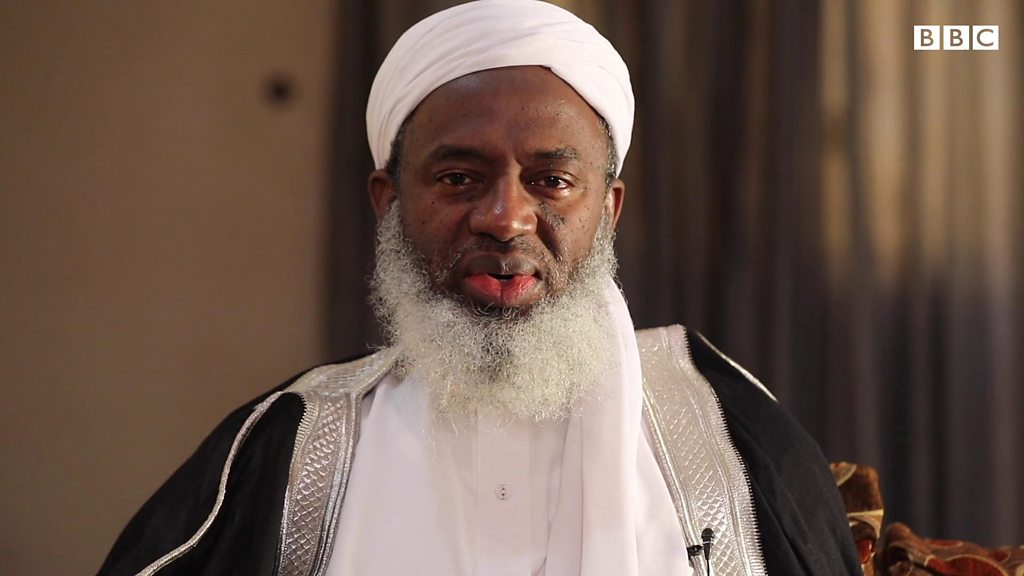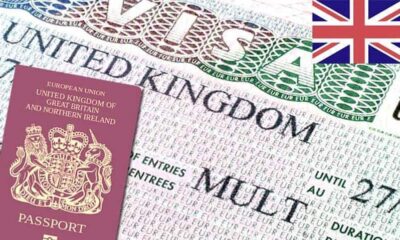News
Airfares drop as foreign carriers unleash low-priced tickets

Airfares drop as foreign carriers unleash low-priced tickets
Foreign airlines operating in Nigeria have begun to unblock their low-priced fares on Nigerian routes as the Central Bank of Nigeria completes the payment of about $7bn backlog, which includes over $700m unremitted ticket revenue.
The CBN had about two weeks ago announced the completion of payment of $7bn legacy debt, which included FX forward contracts among foreign exchange-denominated debts.
The CBN, however, declared about $2.4bn of the $7bn debt invalid, saying it could not be verified due to improper documentation among other infractions.
The International Air Transport Association, the trade body representing foreign airlines, has yet to verify the clearance of the entire $700m but findings showed on Saturday that the foreign carriers had begun to unblock their low-priced tickets.
To maximise their yields, foreign carriers had over 24 months ago blocked their low-priced tickets on Nigerian routes after ticket revenue running to hundreds of millions of dollars became trapped in Nigeria.
The development led to a sharp increase in fares on the Nigeria routes and was exacerbated by the sharp depreciation of the naira against the United States dollar, with economy fares on popular destinations such as the Lagos-London-Lagos route going for over N3m.
The CBN began the gradual clearance of the debt but the new administration of the apex bank later fast-tracked the payment, leading to clearance of major parts of the debt between late last year and so far this year.
Following the CBN announcement of the clearance of the $7bn, findings revealed that most of the airlines had released their low-priced fares.
The development was confirmed by the Chairman of the National Association of Nigerian Travel Agents, Susan Akporiaye.
She, however, revealed that virtually all the foreign carriers opened their low fares before the CBN announcement of the payment of the $7bn about two weeks ago, adding that low fares were opened about two weeks before the apex bank announcement.
READ ALSO:
- El-Rufai’s son attacks Governor Sani over Kaduna’s debts
- Labour Party crisis: Peter Obi threatens to leave if…
- 80 percent of broken marriages cause by sickle cell disorder – Group
Akporiaye said, “All of them (foreign airlines) have opened up all the inventories before the final backlog of forex was cleared. It is not now that it was cleared. It was cleared earlier in March.
“It is the only airline that has not done that. All of them have opened up all the inventories before the final forex backlog was cleared.
“We had a few that had issues – the unverified ones. There were some transactions for which some documents were not available. They were unverified. And those that were not cleared in February because they were unverified are those that have just been cleared.”
The NANTA chairman pointed out that one foreign airline had yet to open up its low-priced tickets, saying, “Before this final clearance, the airlines had already reduced inventories, except for one airline, which I won’t mention due to privacy, and I’m sure that the reason why they haven’t complied is a management thing.”
She emphasised that the airlines had been cooperative, but challenges such as unverified transactions caused delays.
“The money the airlines are saying that they are still owed is money with the commercial banks and not with the government, because commercial banks are private. They are not government entities,” Akporiaye added.
Findings showed that commercial banks were still reconciling with the foreign airlines with a view to clearing the final payment following the announcement of the clearance of the final backlog by the CBN two weeks ago.
“At times, the commercial banks are slower than the communication from the CBN. We will ask the airlines to contact their banks and we will have a clearer position. Then we will be able to respond to your inquiry based on verified data,” an IATA official told one of our correspondents on condition of anonymity because the official was not authorised to speak on the matter.
An IATA spokesperson confirmed the development, noting that the body would come with its position on the matter soon.
“IATA is engaging with its members on the situation regarding blocked funds in Nigeria,” a spokesperson for the global body in Geneva said when an update was sought following the CBN announcement.
However, findings showed that the airfares on the Nigerian route recorded a drop despite the opening of low inventories by foreign carriers.
This was confirmed by the NANTA chairman, Akporiaye.
“The release of lower inventories will not necessarily make airfares low because of the rate of exchange,” she noted.
It was discovered that there was a notable difference in the costs of air tickets sold on March 4, 2024, compared to those on Saturday.
As of Saturday, the round-trip economy class ticket from Lagos to London varied in cost among different airlines.
RwandAir Express offered it at N1,102,563; Royal Air Maroc at N1,628,675; and Ethiopian Airlines at N1,641,249.
However, on March 4, 2024, a round-trip economy class ticket from Lagos to London attracted significantly higher prices. Air France priced it at N2,482,138, while Lufthansa offered it at N1,966,165. Qatar Airways provided the same ticket for N2,016,824, and KLM priced it at N2,448,740.
READ ALSO:
- BREAKING: Ex-Senate President’s loyalists, others defect to APC
- Third Mainland Bridge will resume full operations April 4 – Lagos Commissioner
- Explosives, other weapon uncovered after raid at Anambra criminal den
The average fare for flights on March 30 amounted to approximately N1,457,495.67, reflecting a decrease from the prices observed on March 4, which averaged approximately N2,478,466.75
This price drop represents a 41.19 per cent decrease in the cost of round-trip economy class tickets from Lagos to London.
A trip from Lagos to New York also recorded a drop in fare in the same period.
For the Lagos to New York route on Qatar Airways, the ticket was sold for N2,982,049 as of March 4. However, as of Saturday, it was sold for N1,989,098.
KLM charged N3,158,314; Air France priced it at N3,148,308; United Airlines listed it at N3,193,185, and Delta Air Lines offered the ticket for N3,310,097, on March 4, 2024.
Agents speak
A travel agent with Fadpaulo Travel and Tours Limited, Fadeyi Paul, expressed concerns about the actual impact of the low inventory fares on consumers, saying, “It is still on the high side; there are no low inventories yet. Like Lufthansa.
“But the European airline that I worked with a few days ago has low fares.”
He noted that despite the appearance of low fares, taxes attached to the fares often inflate the final cost for travellers.
Paul stated, “Moreover, the ones which have low inventories, the taxes attached to them are high? They find a way around it and make you still pay one way or the other. If you see a fare that costs $211, you will still end up paying N1.4m.
“So some of them have released low inventories but still make taxes high. So they have a way of working around it to get their money back.”
Another travel agent, Enebeli Alloy, acknowledged that airlines were indeed releasing cheaper fares but noted that the rates were still relatively high.
“The airlines are complying. They are releasing some cheap classes on the system now. The only complaint now is that the rate at which they are selling is still high. But I believe it will reduce gradually. It won’t be done overnight.”
Adewale Adediran of Untamed Travels and Tours echoed similar sentiments, stating, “The inventories have been released although not all, but it is better than what we were experiencing before now.”
Adediran raised concerns about the significant fare differences between travelling from Nigeria compared to neighbouring countries on similar routes.
“The fares are on the high side compared to our neighbouring countries. For example, if one is travelling from Lagos to London and Cotonou to London with the same airline and at the same hour, what they are charging there is lower than what they are charging here. They need to work on that situation,” he added.
Sanction threats
The Federal Government had earlier this month issued a warning to foreign airlines regarding the release of low inventory tickets, threatening sanctions for non-compliance.
During a meeting with the Nigerian Civil Aviation Authority and aviation stakeholders, foreign airlines pledged to enhance transparency by making low-inventory tickets more accessible to the Nigerian middle class.
The Director of Public Affairs and Consumer Protection, NCAA, Michael Achimugu, said that the meeting had in attendance representatives of the National Association of Nigerian Travel Agencies.
While some airlines claimed to have opened low inventory tickets, NANTA confirmed discrepancies, leading to instructions for all airlines to comply.
“A majority of them are reported to have complied by opening low inventory tickets. For those who have yet to do so, we have given them a week or so,” stated Achimugu.
He also mentioned that sanctions would apply to airlines failing to comply, pending confirmation of the exact deadline.
The government had recently disbursed part of the $700m trapped air ticket funds to foreign airlines, signalling ongoing efforts to address aviation industry challenges.
Airfares drop as foreign carriers unleash low-priced tickets
Punch
News
FG announces plans to borrow N13.8tn for 2025 budget

FG announces plans to borrow N13.8tn for 2025 budget
ABUJA—THE Federal Executive Council (FEC) yesterday approved a budget proposal of N47.9 trillion for the 2025 fiscal year and borrowing of N13.8 trillion.
The Minister of Budget and Economic Planning, Atiku Bagudu, disclosed this while briefing State House correspondents, at the end of the Council meeting, presided over by President Bola Tinubu at the Presidential Villa, Abuja.
The approval is part of the Medium Term Expenditure Framework, MTEF, and Fiscal Strategy Paper, for 2025-2027, by the Fiscal Responsibility Act of 2007.
The framework is expected to be submitted to the National Assembly as required by law, either on Friday or Monday.
Bagudu outlined several key parameters that will guide the 2025 budget based on economic projections and government priorities. These include a projected Gross Domestic Product (GDP) growth rate of 4.6% for 2025, an oil price benchmark of $75 per barrel and an exchange rate of N1.400 to $1.
Additionally, the government anticipates oil production at 2.06 million barrels per day.
In terms of fiscal strategy, the budget assumes that the government will borrow approximately N13.8 trillion — about 3.87% of the GDP — to fund key infrastructure projects and economic initiatives.
Bagudu emphasized that this borrowing is part of a strategic plan to balance government spending with sustainable debt management.
The Minister further noted that “the Nigerian economy is showing signs of resilience, with a 3.19% growth rate recorded in the second quarter of 2024.
READ ALSO:
- We didn’t arrest Hamdiyya Sidi for criticising Sokoto governor – Police
- Four varsity lecturers dismissed for sexual misconduct
- Super Eagles seal AFCON 2025 spot, draw 1-1 against Benin
This growth is expected to continue through 2025, driven by efforts to tackle inflation and stabilize key economic sectors.”
Bagudu lists the aims of fiscal policies
He stressed that the Federal Government’s fiscal policies are aimed at strengthening economic resilience, continuing to address inflationary pressures, and providing more targeted support to drive long-term growth.
Bagudu also highlighted that the implementation of the 2024 budget was progressing well, with significant improvements in revenue collection and expenditure management, despite some delays in achieving pro-rated targets.
“Non-oil revenue streams, in particular, have performed better than initially expected, showing promising progress.
The N47.9 trillion proposed budget for 2025 includes various provisions, particularly in areas such as infrastructure development, social programs, and critical national projects.
Bagudu also revealed that for the first time, the government’s budget will include contributions to the development commissions that had recently been passed or were in the process of being passed by the National Assembly.
“These measures are designed to strengthen the country’s social and economic development at the grassroots level.”
He further noted that the federal government is committed to ensuring that the 2025 budget is passed and signed into law before December 2024, in order to create a predictable fiscal environment and adhere to the January-December budget circle that the administration aims to implement moving forward.
In addition to approving the 2025 budget, the FEC also endorsed the 2025-2027 Medium Term Expenditure Framework, MTEF, and Fiscal Strategy Papers, FSP, which outline the government’s long-term fiscal policies and strategies for achieving sustainable growth.
These documents will now be sent to the National Assembly for further review.
Bagudu emphasized that the MTEF and FSP provided the necessary roadmap for the government’s fiscal policy over the next three years, ensuring that public finances remained on a sound footing and that economic growth targets were met.
He expressed confidence that Nigeria’s economic trajectory was moving in the right direction, with positive growth recorded in key sectors.
He stressed that the government’s macroeconomic policies, particularly in the areas of market-driven pricing for petroleum products and foreign exchange, are contributing to the country’s overall economic stability.
“The fiscal efforts are on track, and we are confident that with these strategic investments and reforms, Nigeria will continue to make progress toward a more resilient and sustainable economy,” he declared.
Experts fault govt’s budget assumptions
Economy experts who spoke to Vanguard, however, faulted the budget assumptions, describing some of them as too aggressive.
In his comment, David Adonri, Analyst and Executive Vice Chairman at Highcap Securities Limited said : “One thing that bothers me is the failure of FGN to attach a report of the performance of the previous budget while seeking for approval of the new budget.
“Historical antecedents will let us know whether the assumptions underlying the new budget are reasonable.
“How will FGN finance the budget? Is it still a deficit budget like on previous occasions? There is nothing on ground to indicate that GDP growth rate of 4.6% is attainable in 2025.
“The omission of the forecast for inflation is questionable because the intended GDP growth may just be an inflationary growth which is akin to motion without movement.
“With Donald Trump’s agenda to release more fossil fuel from 2025, the crude oil price forecast may be misleading.
‘Finally, predicating the budget on a crude oil-driven economy shows that budgeting by FGN has not departed from past ruinous economic philosophy.
“It is too pedestrian for a country that should be inward-looking and focused on the mobilization of the idle factors of production in the country.”
On his part, Tunde Abidoye, Head of Equity Research FBNQest Securities Limited, said: “I think that some of the assumptions are a bit aggressive.
“The oil production benchmark of 2.06mbpd looks very ambitious given the current realized oil production level of around 1.3mbpd (ex-condensates), per NUPRC data.
“The exchange rate and GDP growth rate projections are also a bit optimistic given the current exchange rate is N1,650, and the strain on household wallets.
“However, although I think the oil price benchmark is realistic, there are potential downside risks arising from the anticipated ramp up of oil production by the US following President Trump’s victory at the polls.”
Also commenting, Clifford Egbomeade, Public Affairs Analyst/ Communications Expert, said: “The proposed 2025 budget of N47.9 trillion, based on a $75 oil benchmark, 2.06 mbd production, and 4.6% GDP growth, sets ambitious targets given Nigeria’s economic climate.
“The oil production target assumes steady output levels, which may be impacted by infrastructure limitations. Moreso, the projected 4.6% GDP growth may be optimistic, as Nigeria continues to face high inflation, currency pressures, and unemployment.
“The budget includes N9.22 trillion in new borrowing, raising concerns about fiscal sustainability given the nation’s current debt servicing load. “The assumed exchange rate of N1,400 per dollar suggests continued devaluation, which could intensify inflationary pressures. Achieving this budget will require effective fiscal reforms and greater economic diversification to meet revenue and growth targets.”
Dissecting the proposed budget, Port Harcourt-based energy analyst, Dr. Bala Zakka, said: “Oil market is very volatile and absolute caution should be taken in the process of taking the benchmark price for the 2025 budget.”
On output, he said: “The federal government said it is currently producing 1.8 million barrels per day, including condensate. Like in the case of price, adequate caution should also be taken here. I strongly believe that stakeholders, including the government and investors should work harder to further increase the nation’s capacity to produce oil and gas.”
“The Gross Domestic Product, GDP, is all about the production of goods and services in an economy. With constant power supply disruptions, it has not been possible for households and businesses to participate in the economy. It is very doubtful if they will be able to increase investment to produce goods and services in 2025.”
FG announces plans to borrow N13.8tn for 2025 budget
News
Edo Gov Okpebholo freezes govt accounts, reverses ministry’s name

Edo Gov Okpebholo freezes govt accounts, reverses ministry’s name
Edo State Governor, Monday Okpebholo, has directed the immediate freezing of all state-owned bank accounts.
In a statement issued on Thursday by his Chief Press Secretary, Fred Itua, the governor stated that the accounts would remain frozen until further notice.
He instructed commercial banks, ministries, departments, and agencies (MDAs) to comply with the order immediately or face severe consequences.
The statement reads: “All state bank accounts with commercial banks have been frozen. Commercial banks must comply with this order and ensure that not a single naira is withdrawn from government coffers until further notice.
READ ALSO:
- Wike claims Adeyanju became activist after he rejected request to be PDP Publicity Secretary
- VeryDarkMan to Falana: I won’t apologise to anybody
- Court adjourns Falana’s suit against VeryDarkMan to January 2025
“Heads of Ministries, Departments, and Agencies must ensure full compliance without delay.
“Following necessary investigations and reconciliations, the governor will take appropriate action and decide on the way forward. For now, this order remains in effect.”
Okpebholo also directed relevant agencies to revert the name of the Ministry of Roads and Bridges to its previous title, the Ministry of Works, a change made during the Godwin Obaseki administration.
“It is odd to name a government institution the Ministry of Roads and Bridges, especially when not a single bridge was built by the previous administration — not even a pedestrian bridge.
“In the coming days, we will examine further actions taken by the previous administration and make decisions that serve the best interests of the state,” the statement added.
Edo Gov Okpebholo freezes govt accounts, reverses ministry’s name
News
Israel-Palestinian conflict: Two-state solution is a deception, says Gumi

Israel-Palestinian conflict: Two-state solution is a deception, says Gumi
Prominent Islamic scholar Dr. Ahmad Mahmud Gumi has criticized the widely discussed two-state solution for the Israel-Palestine conflict, calling it a “deception.”
His remarks followed a recent summit of the Organisation of Islamic Cooperation (OIC) in Riyadh, where President Bola Tinubu and other leaders condemned Israel’s actions in Gaza and urged an end to hostilities.
In an interview with Daily Trust at his Kaduna residence, Gumi argued, “This Two-State Solution is a deception. No Israeli will allow a Palestinian to survive, and Palestinians will never allow Israel to survive.
READ ALSO:
- Court sacks Ondo LP candidate, two days to governorship poll
- FBI raids home of crypto platform Polymarket CEO, after accurate prediction of Trump win
- 24-hour power supply: FG seeks private sector support for $10bn funding gap
The only solution is to dissolve the two states and create a democratically electable region.”
Gumi commended the OIC’s support for Palestine, noting that Muslims and Arabs worldwide increasingly see the treatment of Palestinians as “genocide” and accuse Israel of human rights abuses.
He also called for a return to the pre-1948 structure, where Palestinians, Jews, and Christians lived together, suggesting a single, inclusive state that allows peaceful coexistence.
“When I hear people talking about Two-State Solutions, I know they are just deceiving themselves,” Gumi added, advocating for a unified region where people of all faiths can live together, similar to the multi-faith coexistence seen in countries like the United States.
Israel-Palestinian conflict: Two-state solution is a deception, says Gumi
-

 Sports14 hours ago
Sports14 hours agoBREAKING: Super Eagles qualify for AFCON 2025
-

 International3 days ago
International3 days agoBelgium University offers scholarship up to €12,000 for Master’s students
-

 Railway3 days ago
Railway3 days agoNigerian railway adds extra train to Friday, Saturday trips on Lagos-Ibadan route
-

 Aviation15 hours ago
Aviation15 hours agoDisaster averted as bird strike hits Abuja-Lagos Air Peace flight
-

 International3 days ago
International3 days agoUK announces 45,000 seasonal worker visas for 2025
-

 Education2 days ago
Education2 days ago12-year-old Nigerian girl Eniola Shokunbi invents air filter to reduce spread of diseases in US schools
-

 Business3 days ago
Business3 days agoTop 5 crypto apps that work with Nigerian Bank accounts
-

 Politics2 days ago
Politics2 days agoWhy I can’t form coalition with Peter Obi – Sowore


